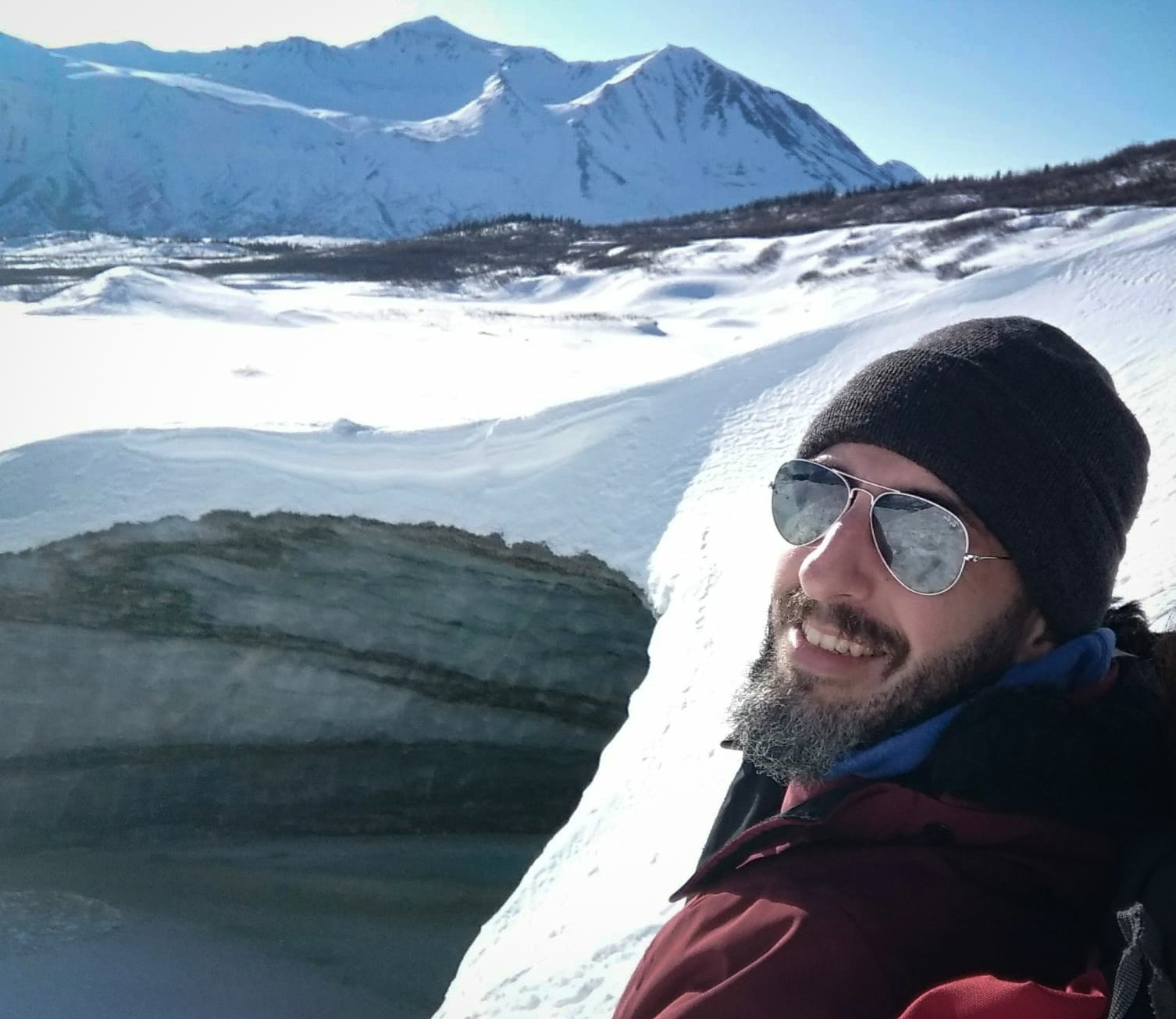Geophysical Institute volcanologist receives international honor

Társilo Girona overlooking a glacier field.
A University of Alaska Fairbanks volcanologist has received a high honor from the International Union of Geodesy and Geophysics.
Társilo Girona, a research assistant professor at the UAF Geophysical Institute, is one of 10 recipients of the organization’s Early Career Scientist Awards, which were announced Nov. 7.
The award is given to early career scientists for outstanding research in Earth and space sciences and for their international research cooperation.
Girona was recognized “for his pioneering and innovative approaches for studying the degassing and eruptive behavior of volcanoes by combining remote sensing, numerical modeling and machine learning,” according to Monday’s IUGG announcement.
“I always dreamed of becoming a scientist to better understand how the Earth works and to help humankind by better anticipating destructive natural events and minimizing their impact,” Girona said.
“Reaching my dream would have been impossible without the good public education I received in the small village of Rojales, Spain, where I grew up and without the dedication placed in me by some of my teachers and professors, such as Manuel and Esperanza,” he said.
Girona studied physics in Spain at the University of Valencia and Complutense University of Madrid, where he obtained his bachelor’s degree and master’s in physics and geophysics. He completed a Ph.D. on a fellowship at Nanyang Technological University in Singapore.
He then moved to the United States, working first at Georgia Tech in Atlanta and then at Brown University in Rhode Island. From there he moved west to Southern California to work three years at NASA’s Jet Propulsion Lab.
And then came a position at the University of Alaska Fairbanks Geophysical Institute, where Girona has been for two years. He became head of the UAF Geophysical Institute’s volcanology group earlier this year.
“I have been blessed with great colleagues, partners, and friends I have collaborated with along this journey, including my peers from the University of Alaska Fairbanks Geophysical Institute,” Girona said.
Girona offered praise for his Ph.D. and postdoc mentors — Fidel Costa, Christian Huber and Vincent Realmuto. He said they challenged him “during our many fruitful discussions, which I strongly believe made me a better scientist and person.”
"For this honor I want to thank the Early Career Scientist Award Committee, the IUGG, my nominators Fidel Costa and Patrick Allard, and the colleagues writing support letters,” he said. “And I would like to dedicate this award to my parents for their unconditional support."
The award will be presented in July at the IUGG General Assembly meeting in Berlin.
CONTACTS:
- Társilo Girona, University of Alaska Fairbanks Geophysical Institute, tarsilo.girona@alaska.edu
- Rod Boyce, University of Alaska Fairbanks Geophysical Institute, 907-474-7185, rcboyce@alaska.edu


